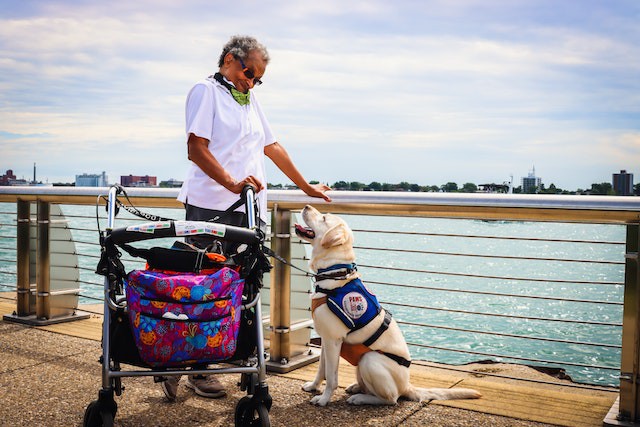ADA and Service Dogs
When you enter a business or place of public accommodation with your service dog, you should know your rights when accessing a business. If you or a loved one are ever denied access to a business with your service dog, it is important to know that you can and should assert your legal right to access. Under the American with Disabilities Act (the “ADA”), businesses must allow you and your service dog the same access that is open to the public without service animals.
If you require a trained service dog to perform certain tasks for you, a business must allow your service animal to accompany you anywhere other members of the public are permitted; even if state or local health codes prohibit animals on site. Along with the right to be accompanied, a business cannot isolate you from other patrons, treat you less favorably, or charge additional fees. Even where a business charges fees for pets, the business must waive that fee for your service animal.
What is a Service Animal?
The ADA defines service animals as: “dogs that are individually trained to do work or perform tasks for people with disabilities.” Tasks performed by service animals may include, but are certainly not limited to: pulling wheelchairs; guiding visually impaired individuals; alerting the hearing impaired; calming individuals with Post Traumatic Stress Disorder during anxiety attacks; and reminding a person to take their prescribed medication. Unfortunately, the American with Disabilities Act (the “ADA”) does not provide the same rights for emotional support animals (including therapy dogs or comfort animals) and therefore, businesses may refuse such animals and their owners access to the establishment.

